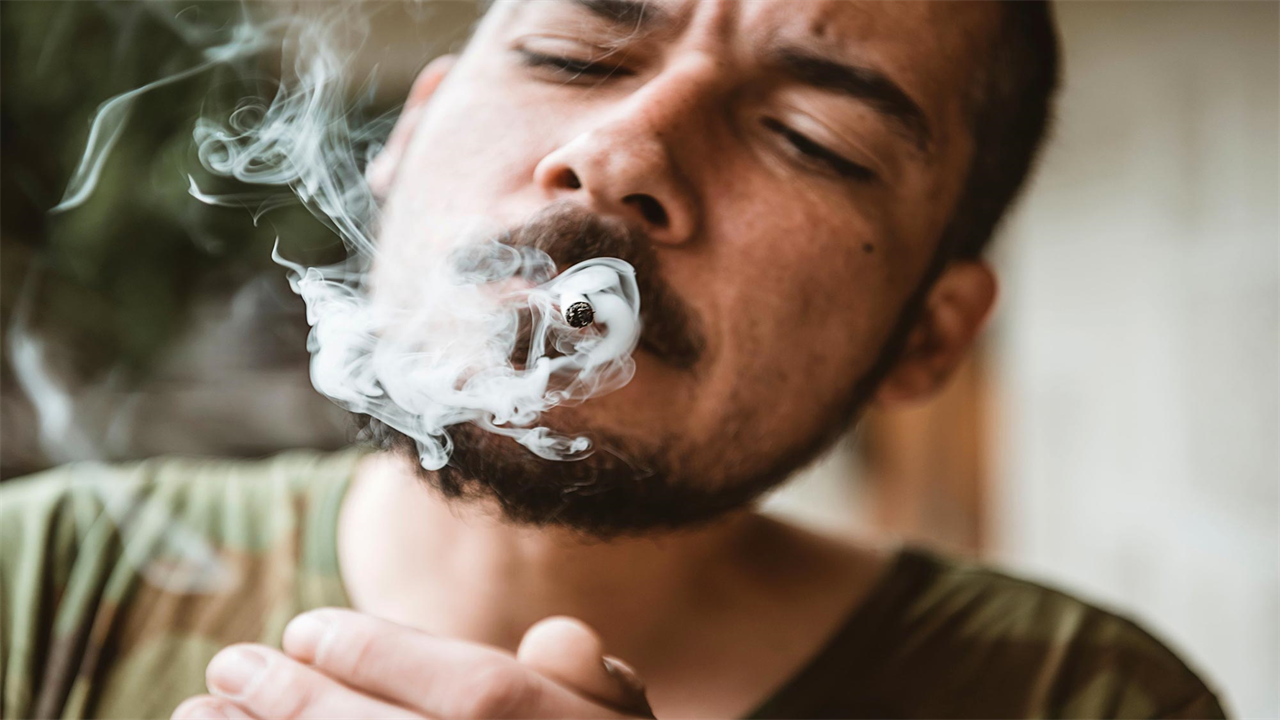Research Indicates Problematic Marijuana Use Is Correlated With Poorer COVID-19 Outcomes
0 View
Share this Video
- Publish Date:
- 11 October, 2021
- Category:
- Covid
- Video License
- Standard License
- Imported From:
- Youtube
Tags

By Washington University in St. Louis October 11, 2021
Cannabis use disorder: another COVID risk factor
Should doctors be extra careful when talking to patients about the potential dangers of COVID-19 if those patients have a problematic relationship with marijuana?
New research from Washington University in St. Louis suggests that perhaps they should.
Diabetes, obesity and a history of cigarette smoking are all considered risk factors for worse COVID-19 outcomes. Alerts and tailored information are targeted at people with these conditions, and doctors are well aware of the increased risks they pose.
Findings from the lab of Ryan Bogdan, associate professor in the Department of Psychological & Brain Sciences in Arts & Sciences, suggest cannabis use disorder (CUD) should be added to the list because the genetic predisposition to CUD is overrepresented in people with bad COVID-19 outcomes. More work is needed to determine whether there is a direct causal relationship.
The research is published in the journal Biological Psychiatry: Global Open Science.
“As sociocultural attitudes and laws around cannabis use become more permissive and COVID-19 continues to spread, we need to better understand how cannabis use and heavy and problematic uses are associated with COVID outcomes,” said Ryan Bogdan, associate professor at the Department of Psychological & Brain Sciences. Credit: Washington University in St. Louis
“As sociocultural attitudes and laws around cannabis use become more permissive and COVID-19 continues to spread, we need to better understand how cannabis use and heavy and problematic uses are associated with COVID outcomes,” Bogdan said.
First author Alexander S. Hatoum, a postdoctoral researcher at Washington University School of Medicine, used genetic epidemiological models to determine that genetic predisposition to CUD is associated with the risk of a severe response to COVID-19 (i.e., being admitted with COVID-19). 19).
Hatoum combined existing data sets to test whether a higher genetic risk of a cannabis use disorder was correlated with the risk of hospitalization from COVID. One set of data involved 357,806 people, including 14,080 with CUD; the other involved 1,206,629 people, including 9,373 hospitalized with COVID. He also looked at 7 million genetic variants to assess the link between CUD and severe COVID.
Having genetic variants does not mean that a person has CUD or that the person has used cannabis.
What is a cannabis use disorder?
Here are some of the diagnostic criteria used by the American Psychological Association:
A persistent desire or unsuccessful attempts to reduce or control cannabis use; Craving or strong desire to use cannabis; Repeated cannabis use leads to failure to fulfill role obligations at work, school or home; Important social, occupational, or recreational activities are abandoned or reduced due to cannabis use; Repeated cannabis use in situations where it is physically dangerous; A need for markedly increased cannabis to achieve intoxication or the desired effect or a markedly reduced effect with continued use of the same amount of the substance (tolerance); and Withdrawal.
When comparing people with the variants on their COVID outcomes, the researchers found that genetic liability for CUD accounted for up to 40% of genetically influenced risk factors, such as body mass index (BMI) and diabetes, for severe COVID-19. presentation. This association suggested that heavy and problematic cannabis use may be a modifiable route to minimize severe COVID-19 presentations.
The results of this study point to two possible outcomes: that a predisposition to CUD and severe COVID-19 is due to a common biological mechanism, such as inflammatory conditions that cause individuals to develop worse symptoms of COVID-19 and/or dependence on cannabis; or that they are associated because of a causal process.
“If we know the genes that predispose individuals to cannabis use disorder, and if cannabis use disorder is a risk factor for COVID-19 hospitalization, you will see the genes that influence cannabis use disorder as predictors of severe COVID-19 cases,” Hatoum said. . “We found that a person’s genetic risk of a cannabis use disorder correlated with their risk of COVID-19, without having to ask directly about illicit substance use.”
The genetic association between CUD and COVID-19 severity was comparable in magnitude to genetic correlations between COVID-19 severity and BMI, a known risk factor for severe COVID-19 presentations. In addition, it was present even when taking into account genetic liability for BMI and other risk factors for a severe response to COVID-19, including metabolic properties (e.g., fasting glucose, hypertension); respiratory characteristics (e.g., forced expiratory volume, COPD); social economical status; alcohol and tobacco use; and indices of impulsivity.
“That the genetic relationship between CUD and COVID-19 is independent of these factors raises the intriguing possibility that heavy and problematic cannabis use may contribute to severe COVID-19 presentations. As such, it is possible that combating heavy and problematic cannabis use could help mitigate the impact of COVID-19,” said Hatoum.
“This information needs to be incorporated into any strategy to beat this disease,” Hatoum said.
These data suggest that heavy cannabis users may have a more negative response to COVID-19 and that, like smoking cessation or lowering BMI, reducing and/or stopping heavy cannabis use may protect against severe COVID-19 reactions.
Reference: “Genetic Liability to Cannabis Use Disorder and COVID-19 Hospitalization” by Alexander S Hatoum, Claire L. Morrison, Sarah MC Colbert, Evan A. Winiger, Emma C. Johnson, Arpana Agrawal and Ryan Bogdan, June 19, 2021, Organic Psychiatry Global Open Science.
DOI: 10.116/j.bpsgos.2021.06.005










